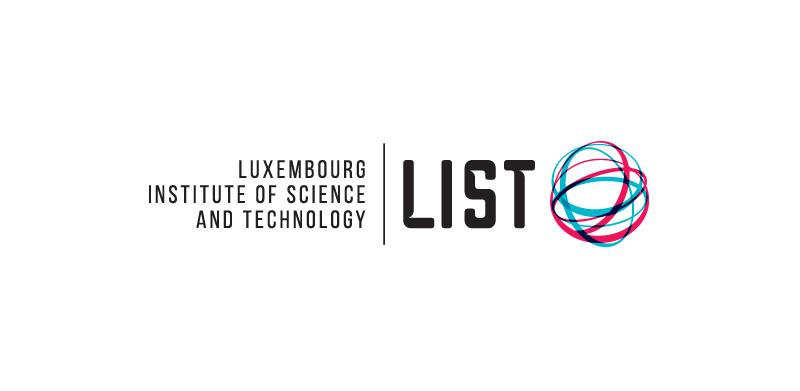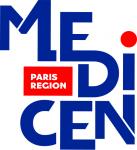INT-26050 INTERNSHIP - ADVANCED MICROSCOPY AND MASS SPECTROMETRY IMAGING OF PLASTIC NANOPARTICLES IN INTESTINAL MODELS
| ABG-134453 | Stage master 2 / Ingénieur | 6 mois | Negotiable |
| 19/11/2025 |

- Biochimie
Établissement recruteur
Site web :
The Luxembourg Institute of Science and Technology (LIST) is a Research and Technology Organization (RTO) active in the fields of materials, environment and IT. By transforming scientific knowledge into technologies, smart data and tools, LIST empowers citizens in their choices, public authorities in their decisions and businesses in their strategies.
https://www.list.lu/
Your LIST benefits
- An organization with a passion for impact and strong RDI partnerships in Luxembourg and Europe that works on responsible and independent research projects;
- Sustainable by design, empowering our belief that we play an essential role in paving the way to a green society;
- Innovative infrastructures and exceptional labs occupying more than 5,000 square metres, including innovations such as our Viswall, high-scale incubators and top of the range 3D/4D printings that are part of our toolkit for excelling in all we do;
- Multicultural and international work environment with more than 45 nationalities represented in our workforce;
- Diverse and inclusive work environment empowering our people to fulfil their personal and professional ambitions;
- Gender-friendly environment with multiple actions to attract, develop and retain women in science;
- 32 days’ paid annual leave for a full time internship, 11 public holidays per annum, flexible working hours,
- An environment encouraging curiosity, innovation and entrepreneurship in all areas.
Description
Internship contract – 6 months | Fulltime/40h | From 01.03.2026 on | Belvaux
Are you passionate about research? So are we! Come and join us
How will you contribute?
Micro- and nanoplastics represent a widespread form of pollution and are currently among the major environmental and health concerns due to their interactions with natural ecosystems and living organisms. The very properties that have driven the massive use of plastics, namely durability and resistance, now pose significant challenges for recycling and disposal. Once discarded, plastics accumulate in oceans, soils, and water sources, contaminating food chains, and when used for packaging, they can directly contaminate food and beverages. Consequently, dietary intake is considered one of the main routes of exposure to microplastics, with the gastrointestinal tract acting as the first physical barrier against these pollutants.
In response to these concerns, green alternatives are being developed with the goal of replacing conventional petroleum-based plastics with bio-based materials, focusing on biodegradability. However, only a few studies have investigated the potential effects of these alternatives on the human gut.
Our project aims to explore the impact of nanoplastics on the human intestine. Nanoparticles derived from conventional (polyethylene), and bio-based (polylactic acid) plastics are compared using state-of-the-art in vitro assays and advanced analytical imaging techniques to assess their influence on gut microbiota and intestinal cell integrity. To achieve this, we combine light and electron microscopy with advanced mass spectrometry–based imaging techniques. This powerful combination will enable a detailed visualization of biological specimen morphology while providing in-depth analytical information.
The integration of these complementary imaging methods will generate valuable insights to better understand the potential adverse effects of plastic-derived particles on the gastrointestinal tract. Moreover, this multidisciplinary approach will open new perspectives in food toxicology and life sciences more broadly.
The internship will involve close collaboration with researchers in materials and environmental sciences as part of a broader effort to develop a correlative microscopy imaging methodology. This approach aims to link structural and chemical information across multiple imaging modalities, advancing our understanding of complex interactions at the micro- and nanoscale.
The objectives of this internship are to:
- Perform cell culture and in vitro exposure to nanoparticles.
- Assess cytotoxicity.
- Develop a common sample preparation method for light, electron, and ion mass spectrometry imaging.
- Rapidly screen and characterize samples using high-throughput imaging techniques such as confocal microscopy and electron microscopy (EM), before performing more detailed analyses.
The trainee will be exposed to state-of-the-art correlative imaging methods integrating optical and mass spectrometry techniques
On the soft skills and learning attitude side, the internship requires autonomy, problem-solving abilities, and attention to detail, together with a strong willingness to learn and scientific curiosity.
The internship takes place within the AINA Teams. You’ll join a team led by Jean-Nicolas AUDINOT.
Profil
Is Your profile described below? Are you our future colleague? Apply now!
Education and skills
- Master in chemistry or bio chemistry
- General chemistry background, analytical chemistry skills
Language skills
- Good level written and spoken English.
Prise de fonction
Vous avez déjà un compte ?
Nouvel utilisateur ?
Vous souhaitez recevoir nos infolettres ?
Découvrez nos adhérents
 Laboratoire National de Métrologie et d'Essais - LNE
Laboratoire National de Métrologie et d'Essais - LNE  Servier
Servier  TotalEnergies
TotalEnergies  Institut Sup'biotech de Paris
Institut Sup'biotech de Paris  Groupe AFNOR - Association française de normalisation
Groupe AFNOR - Association française de normalisation  Medicen Paris Region
Medicen Paris Region  Aérocentre, Pôle d'excellence régional
Aérocentre, Pôle d'excellence régional  Nokia Bell Labs France
Nokia Bell Labs France  ANRT
ANRT  Tecknowmetrix
Tecknowmetrix  Ifremer
Ifremer  ADEME
ADEME  ONERA - The French Aerospace Lab
ONERA - The French Aerospace Lab  ASNR - Autorité de sûreté nucléaire et de radioprotection - Siège
ASNR - Autorité de sûreté nucléaire et de radioprotection - Siège  Généthon
Généthon  SUEZ
SUEZ  Nantes Université
Nantes Université
